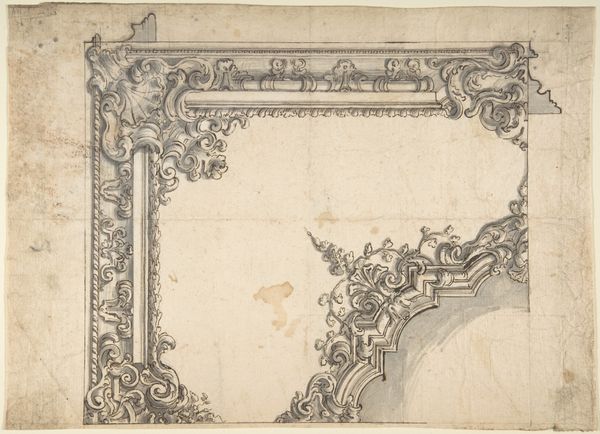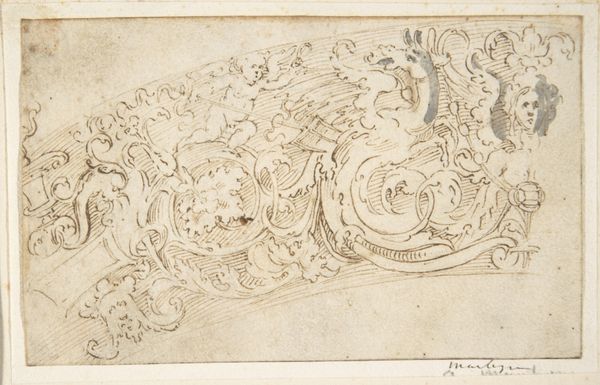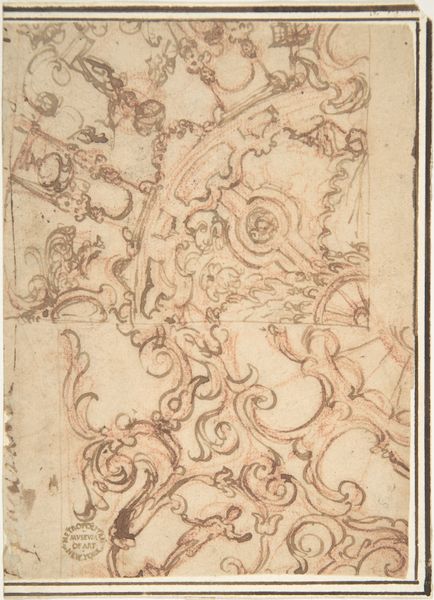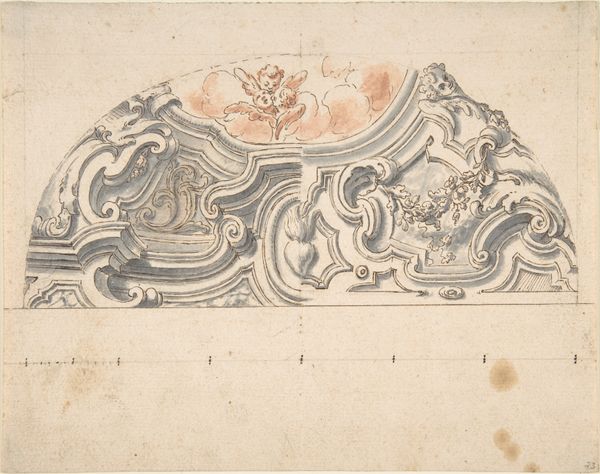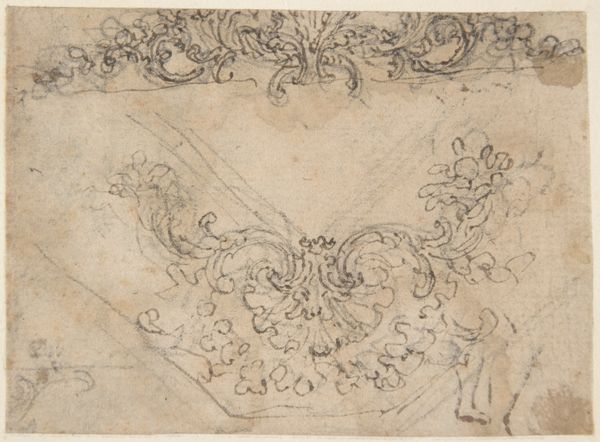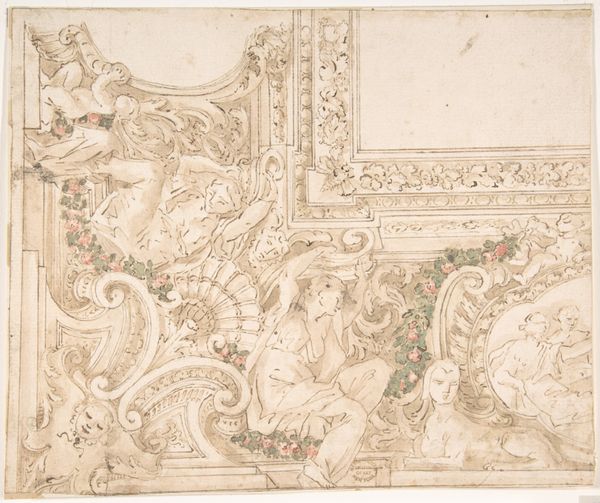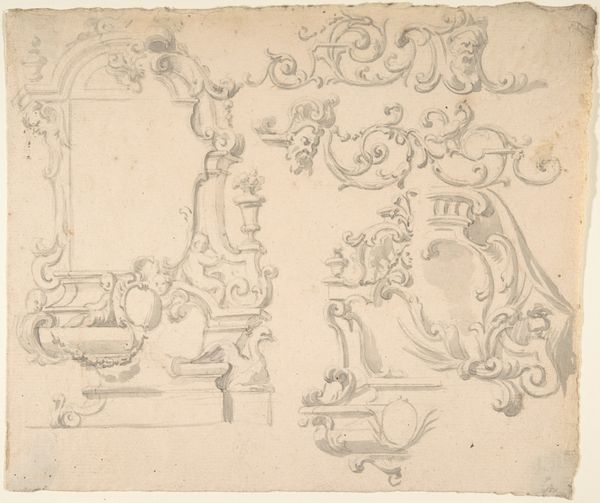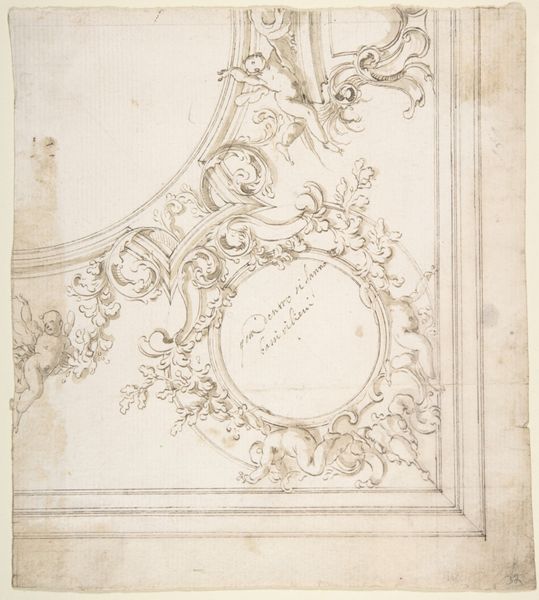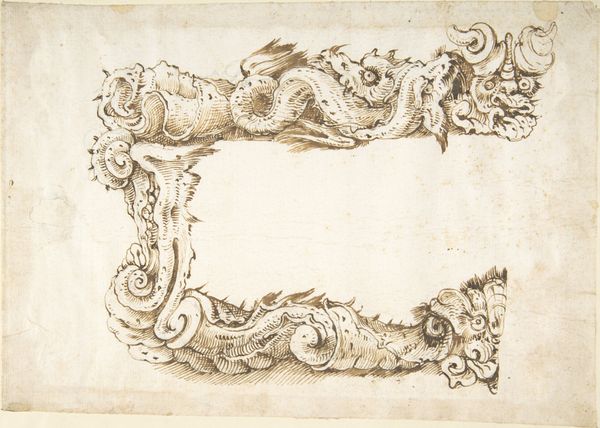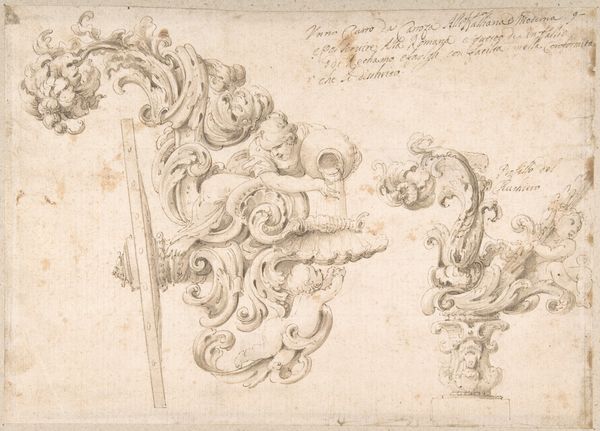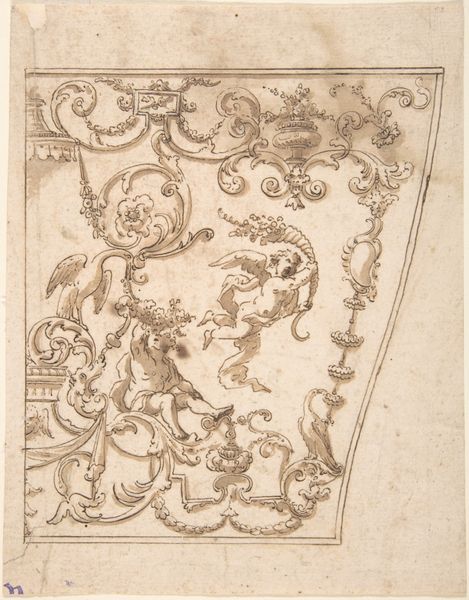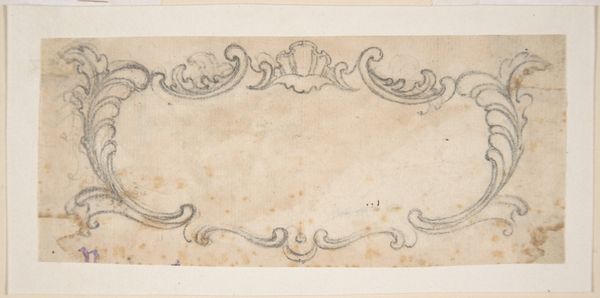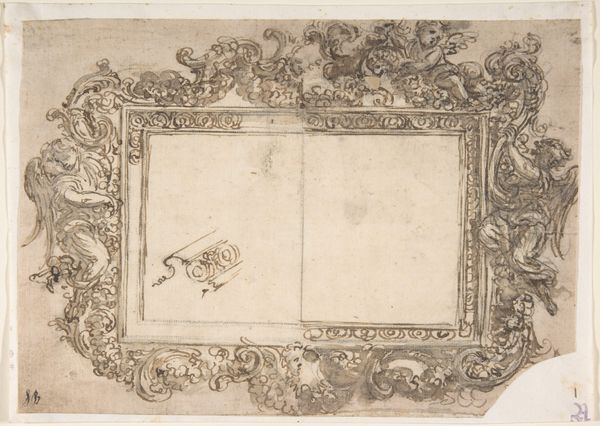
drawing, print, paper, ink
#
portrait
#
drawing
#
allegory
#
baroque
#
ink painting
# print
#
paper
#
ink
#
coloured pencil
#
genre-painting
#
miniature
Dimensions: sheet: 4 3/4 x 8 7/8 in. (12 x 22.5 cm)
Copyright: Public Domain
Editor: Here we have an ink drawing from the 17th century, titled "Design for a Cartouche with a Variant." The artist is anonymous. I am struck by the use of these cherubic figures; they remind me a bit of the Baroque aesthetic and maybe its connection to power. How would you interpret this work, particularly considering its social context? Curator: I see this drawing as deeply embedded within the 17th-century societal structures. Cartouches were often used to frame inscriptions celebrating powerful figures, and here we have cherubs – symbols of innocence and divine approval – flanking what appears to be an allegorical scene. Who were these symbols intended to empower and whose voices were being excluded by that framing? Editor: That’s a fascinating question. The cherubs definitely give it a sense of legitimacy or divine right, I think. Are there other aspects beyond the obvious symbols that tell you more about its place in society? Curator: The very act of creating such an elaborate design suggests a culture that valued ornamentation and display, something tied to wealth and status. This piece becomes not just a drawing but evidence of the hierarchies present. Consider also, whose stories are told through allegories like these? Editor: So, by examining something seemingly decorative, we are able to look at questions of class and gender too. That makes you think about art’s function beyond just aesthetic enjoyment. Curator: Precisely! By interrogating the visual language, and considering gendered social roles and class structures of the period, we reveal power dynamics encoded within art. What does thinking about those historical inequalities tell you about your own engagement with art today? Editor: I now understand the piece can offer historical insights, highlighting voices that were celebrated as well as silenced. Thanks! Curator: Indeed. Recognizing this allows us to appreciate art and history as tools for understanding systemic power.
Comments
No comments
Be the first to comment and join the conversation on the ultimate creative platform.
